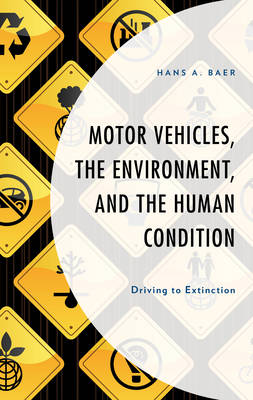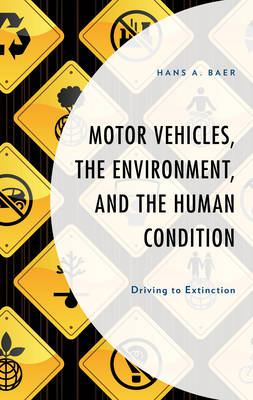
- Afhalen na 1 uur in een winkel met voorraad
- Gratis thuislevering in België vanaf € 30
- Ruim aanbod met 7 miljoen producten
- Afhalen na 1 uur in een winkel met voorraad
- Gratis thuislevering in België vanaf € 30
- Ruim aanbod met 7 miljoen producten
Zoeken
€ 69,45
+ 138 punten
Omschrijving
The world now has more than a billion motor vehicles, and this number continues to increase as developing countries imitate developed societies in their adoption of the culture of automobility. This book explores the political ecology of motor vehicles in an era of growing social disparities and environmental crises, the latter of which are most manifest in anthropogenic climate change to which motor vehicles constitute a major contributor. A political ecological perspective recognizes that motor vehicles, perhaps more than any other machine, embody the social, structural, cultural, and environmental contradictions of the capitalist world system. In addition to highlighting many of the environmental, social, and health, environmental consequences of humanity's increasing reliance on motor vehicles, particularly private automobiles, this book argues that ultimately we need as a species to move beyond motor vehicles as much as possible but that such an effort will have be part and parcel of creating an alternative world system based on social justice, democratic processes, environmental sustainability, and a safe climate, one termed democratic eco-socialism.
Specificaties
Betrokkenen
- Auteur(s):
- Uitgeverij:
Inhoud
- Aantal bladzijden:
- 258
- Taal:
- Engels
- Reeks:
Eigenschappen
- Productcode (EAN):
- 9781793604903
- Verschijningsdatum:
- 13/04/2023
- Uitvoering:
- Paperback
- Formaat:
- Trade paperback (VS)
- Afmetingen:
- 152 mm x 229 mm
- Gewicht:
- 381 g

Alleen bij Standaard Boekhandel
+ 138 punten op je klantenkaart van Standaard Boekhandel
Beoordelingen
We publiceren alleen reviews die voldoen aan de voorwaarden voor reviews. Bekijk onze voorwaarden voor reviews.







